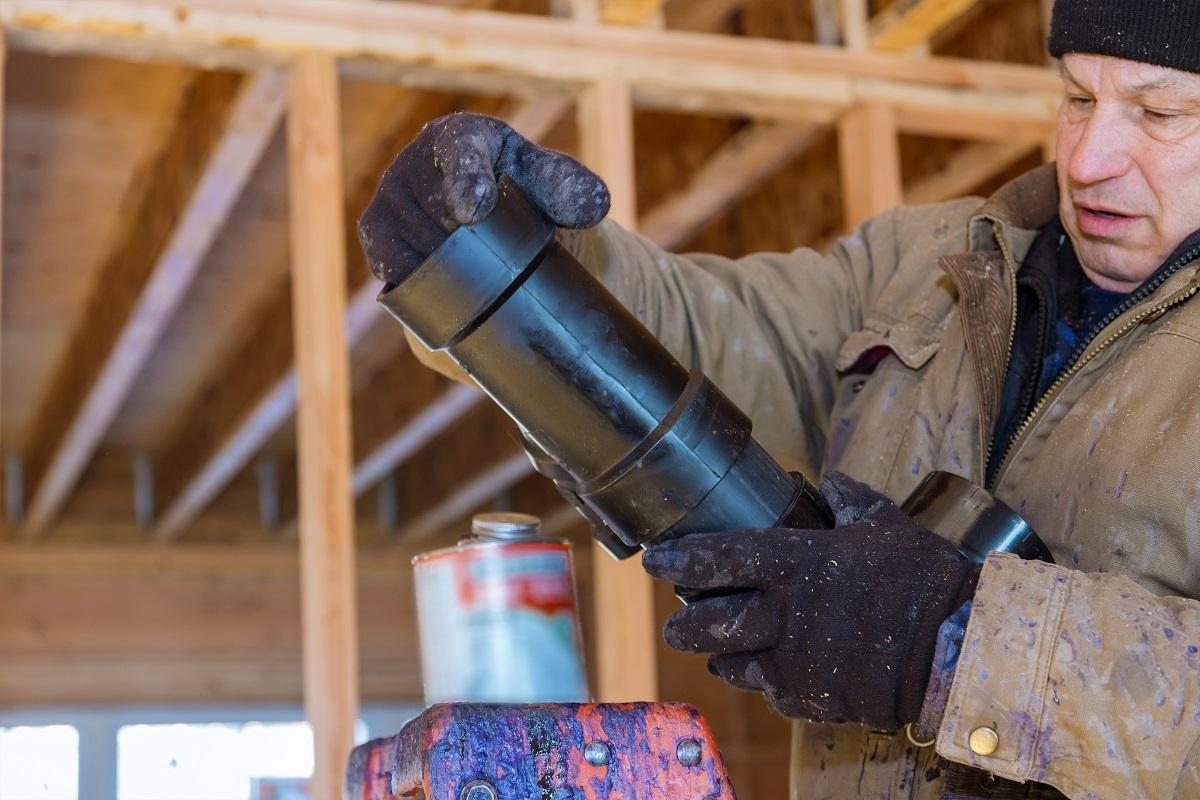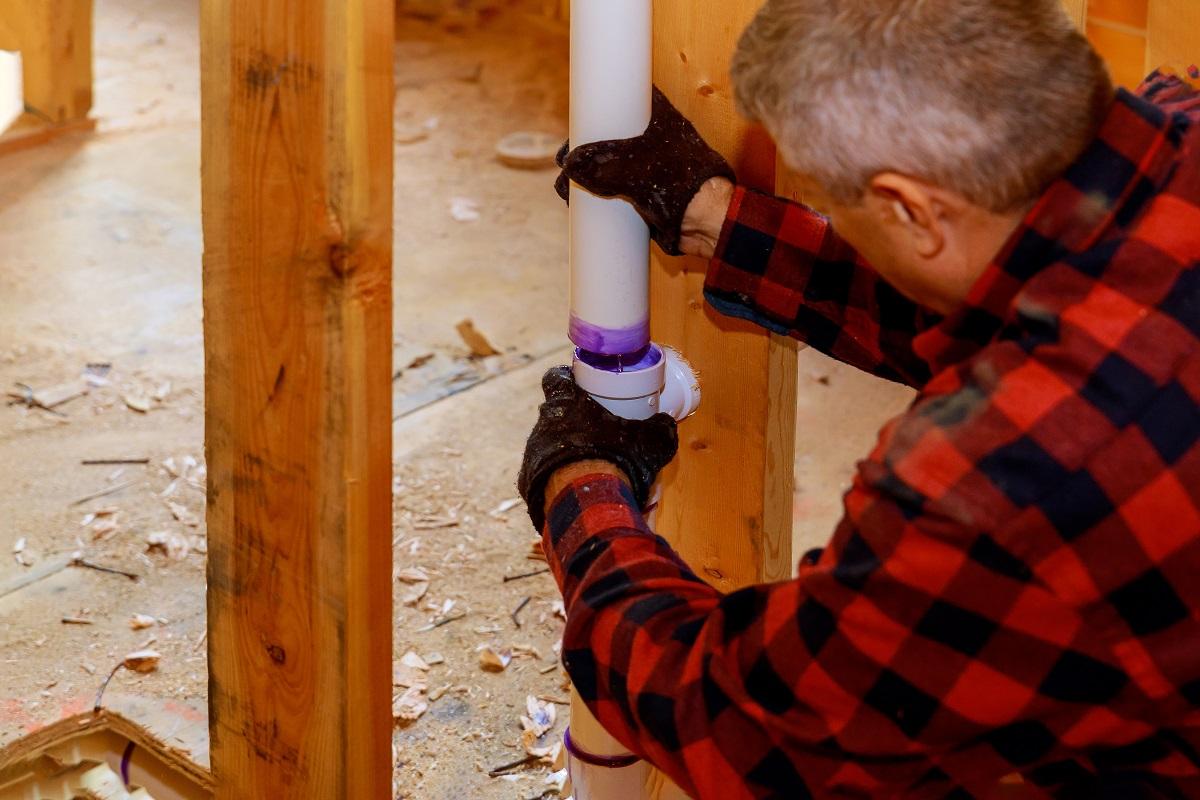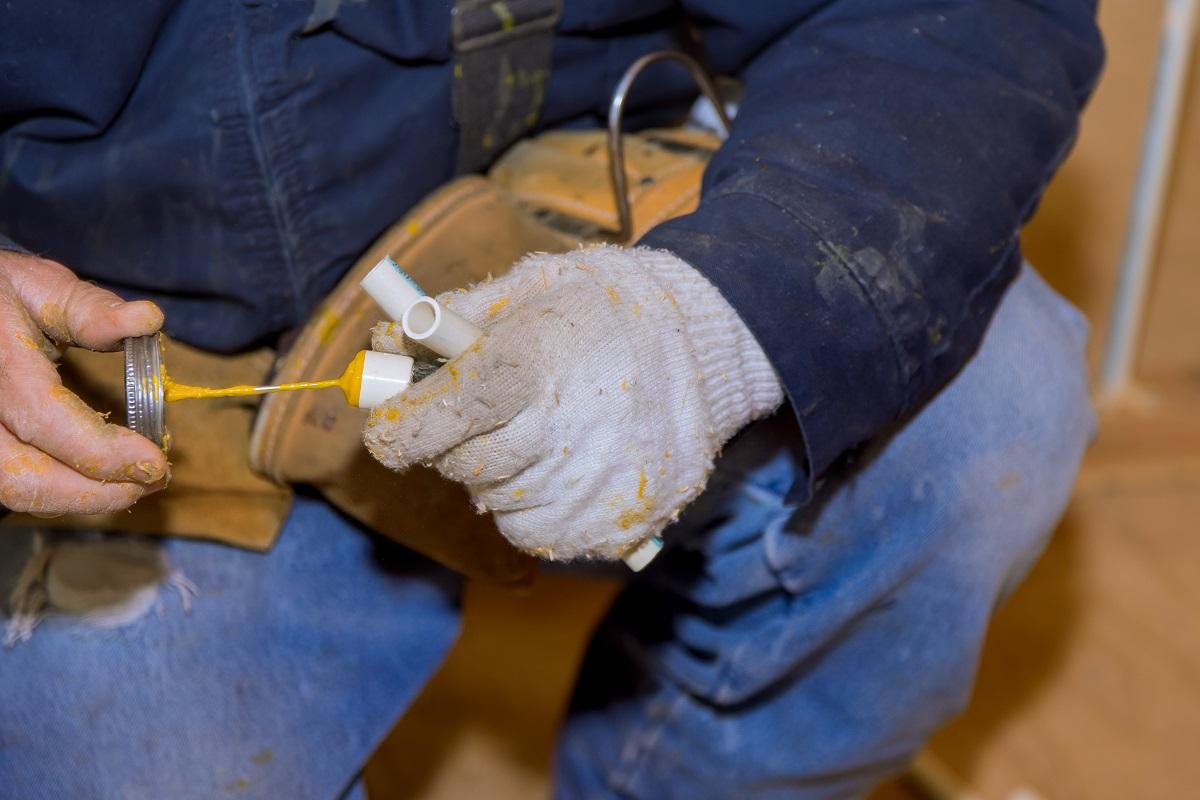Struggling to fix the ABS and PVC pipes in your bathroom? Try gluing the pipes together as it can work wonders while fixing plastic pipes.

However, don’t mix up the glue while using it because even though ABS and PVC are both plastic pipes, they are very different. Hence, you cannot use PVC glue on an ABS pipe and vice versa.
But, how does PVC glue differ from ABS glue, and how can you use this glue to fix the pipe fittings? We are here to answer all these questions and much more. In this article about glue that works on ABS And PVC, we’ll cover all the necessary details related to fixing pipe fittings with glue while talking about glue that works on ABS and PVC pipes.
So, without further ado, let’s get on with it!
What Are PVC Pipes?

One of the most popular alternatives to metal pipes is polyvinyl chloride or PVC pipes. This high-quality plastic pipe fitting is durable and soft, making it an ideal replacement for metal pipes. Furthermore, they are highly affordable, so you don’t need to break the bank while installing them for your plumbing system.
Also, you don’t have to face the issue of burst pipes or leaks with PVC pipes. Hence, they are commonly used in the main water supply line for supplying water to your kitchen and bathroom.
It is also widely used in sewage and irrigation systems. On top of this, the high-quality soft and flexible plastic material of the pipe makes it pretty easy to mold.
Naturally, a PVC pipe can fit anywhere in the building for plumbing work. Plus, the lightweight plastic material of the pipe makes it much easier to install compared to metal pipe fittings.
What Are ABS Pipes?
Acrylonitrile Butadiene Styrene or ABS pipes are like the close cousin of PVC pipes. In terms of the plastic material of the pipe, ABS is very similar to PVC, but the former has a much softer texture and black color. And owing to the soft texture, ABS pipes can easily fit in small and tight spaces.
Also, ABS pipe fittings are highly durable and ideal for transporting cold water. So, they are often used in the plumbing system of drains and underground sewage lines. Plus, the ABS pipe is much better at carrying hot water than PVC pipe fittings. However, it is not resistant to temperatures higher than 160℉.
On top of this, ABS is a thermoplastic resin, which makes the pipe soft and eco-friendly. It has also been possible to manufacture ABS pipes from recycled plastic. On the downside, the ABS plastic material can be pretty noisy. Hence, most local codes don’t permit the installation of ABS pipes in buildings. But, these are very common in sewer and drainage systems.
PVC Pipes Vs. ABS Pipes
Both PVC and ABS pipe fittings are pretty easy to work with if you compare them with metal pipes. They are easy to repair and replace, and you can simply glue them up. However, they have some unique and distinct features that set them apart.
For instance, PVC pipe fittings are easier to cut through when compared to ABS pipe and are much easier to glue. In contrast, ABS pipes are more resistant to extreme temperatures than PVC.
On the contrary, you need a higher temperature for ABS glue to adhere to ABS plastic material while fixing ABS pipe. But, it is much more durable than any PVC pipe. Thus, you can choose to go for PVC or ABS based on your plumbing requirements.
Solvent Cement For Plastic Pipes
The modern plumbing system is mostly plastic. So, when you’re trying to fix any pipe in the modern plumbing system, it is best to have a clear idea about solvent cement primer or glue. Most plastic fittings are usually joined by using glue or solvent cement. Thus, better be safe and careful while using those because you don’t want to deal with any leaky water lines in your house.
Usually, glue is used to put together ABS, PVC, and CPVC pipes. But it is most commonly known as all-purpose cement or transition cement when you use it on different plastic pipes.
Most importantly, the plumbing cement is not interchangeable. Each pipe has its own cement, and you have to stick to using it while joining the pipes.
For instance, the green glue or the green cement works exclusively on PVC. It can also help join ABS with PVC, but it does not work only on ABS. So, even though you can use it to join PVC with ABS, you cannot use it to weld ABS pipes with each other.
Does PVC Glue Work On ABS Pipes?
We’re sure you’ve realized by now that there are distinct differences in the ABS and PVC plastic materials. Thus, never try to use PVC glue on ABS pipes. It won’t work, and you’ll be doing more harm than good to your plumbing system.
But say, you have a water drainage system containing both ABS and PVC pipes. Under such circumstances, you can use the green PVC glue to attach the two piping systems. You can only use this green glue to attach PVC with ABS.
Can You Interchange The Glue In Plumbing?
According to the modern plumbing rule, interchanging the glues is strictly prohibited. You cannot mix and match the glues while using them on different plastic pipes. The PVC glue is only for PVC pipes. And similarly, the ABS glue is only suited for ABS pipes.
The two plastics have different characters. So, you won’t be able to make the glue stick to the plastic materials if you use it on the wrong pipe. You can only interchange the glue when you’re joining ABS and PVC pipes together. Otherwise, you can’t do it.
PVC Glue Vs. ABS Glue
PVC glue or PVC cement works quicker than ABS glue. It adheres to the PVC pipe material faster and takes only 30 seconds for the PVC glue to dry up after its application on the PVC pipe. After 15 minutes, the glue hardens, following which you can use the pipes after two hours.
On the other hand, applying the ABS glue takes at least two hours to dry off completely, and it hardens after 24 hours. So, there’s no way you can use the pipe within that time for supplying water. But, on the positive side, ABS glue is much more durable and long-lasting than PVC glue.

Final Thoughts
Fixing pipes can be tricky if you don’t know what to do. Anyhow, after going through our article about glue that works on ABS And PVC, we hope you have a better idea about fixing PVC and ABS pipes using suitable glue.
Just make sure to take safety precautions when you’re working with such chemicals to avoid potential injuries. Wear your goggles or gloves for protection, and you should be fine.
With that, we’ll sign off. Take care, and we’ll see you next time!
Related Articles
11 Best Glue for Polypropylene
11 Best Glue For Paper & Paper Mache
9 Best UV Light Glue for Amateurs & Professionals
10 Best Ceramic and Porcelain Glue
11 Best Permanent Fabric Glues
9 Best Glue For Acrylic Plexiglass
9 Best Glue for Plastic Eyeglass Frames

